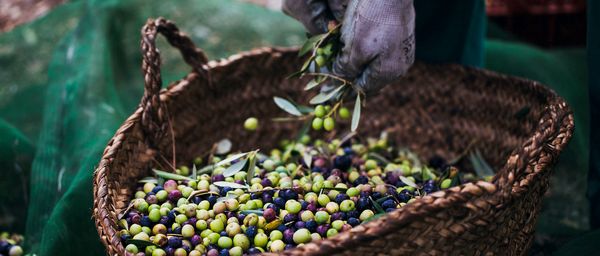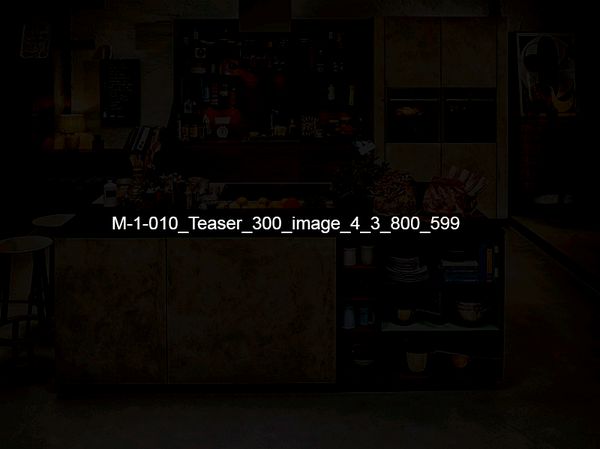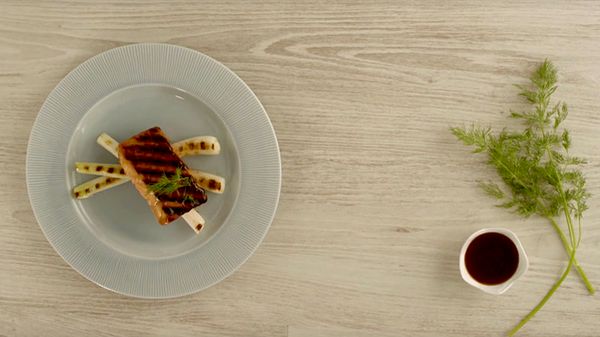The harvest tractors queue until dark with their fresh load. As soon as the sun sinks below the horizon, you can see their flashing hazard lights roaming through the fields and villages. Despite the brisk activity at the farm and the waiting time, there is no stress. People know each other around here and take advantage of the time. On cold days, Josep-Maria’s mother lights the wood-fired oven in the small hall and serves some tapas with wine. There is always plenty to talk about. There is just as much discussion about how the new manager of FC Barcelona is doing as there is about the latest initiative from the Catalonian independence movement.
The oil innovator
Olive oil isn’t just food. It is liquid longing. It calls to mind a summer evening in a secluded trattoria. Thoughts of the sun and ocean, gnarled ancient trees, and faces bronzed by the sun. When we drizzle the golden-green elixir over our salad or pasta, we’re pouring on the dream of a simple, healthy life.
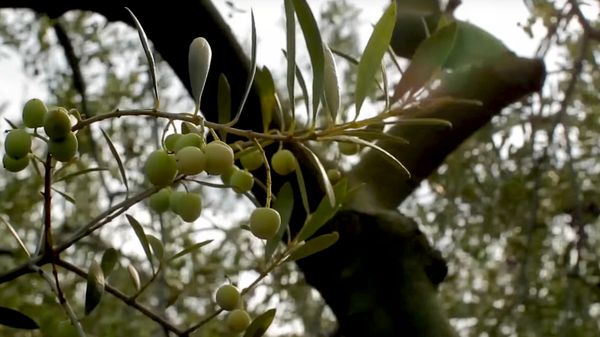
The land where olive trees bloom
In the extreme southwest of Catalonia, nestled in the gentle lowlands between the rugged Prades Mountains, the vineyards of Priorat, and the beach of Costa Daurada, the fertile olive groves of Baix Camp cover an area just 20 kilometres wide. The small town of Riudoms can be found in the heart of this area. Salvador Dalí spent his summers right around the corner in the coastal town of Cambrils. This is where Josep-Maria Mallefré refines the art of making olive oil.
Starting in early November, Josep-Maria Mallafré’s mill works flat out:
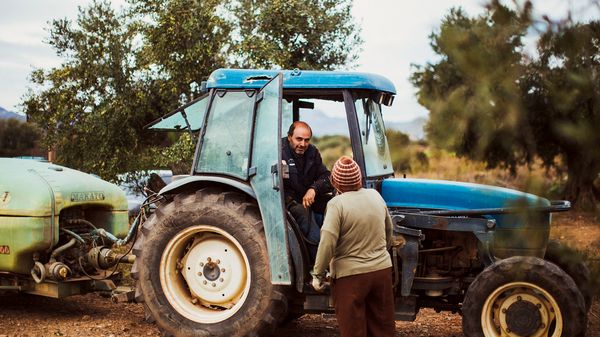
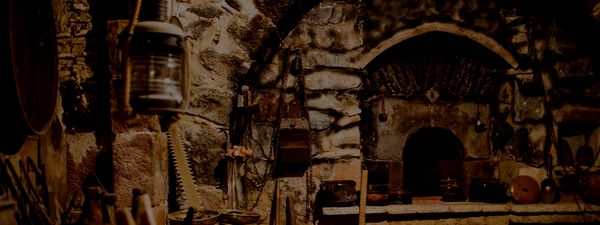
The faces of the old farmers reveal the colourful history of the region.
The Mallafré’s mill was one such setting in the past. A few old millstones and heavy cast-iron presses bring to mind the time when Josep-Maria’s grandfather, who established the mill, had to flee to France with his family to escape Franco’s troops. To make sure that he didn’t lose the mill to the military regime, the staunch Republican regularly dispatched his young son, Josep-Maria’s father, across the border to check whether everything was all right in Riudoms. Because he was a child, he didn’t need to show any identification papers and was able to carry out his father’s instructions unhindered.
“My father was the mill”
Later, the family returned to the mill. Josep-Maria’s father took over the fate of the company and expanded the operation. “My father was the mill. The most important thing he gave to me was his passion.” Josep-Maria points to a black-and-white photo on the wall. It shows three men in dirty work overalls between the straw mats, on which they are spreading ground olive paste. There is a huge olive press in the background. One of the men in the photo is looking at the camera. It is his father. For a brief moment, the normally lively Josep-Maria appears pensive. When his father died nine years ago in a car accident, he had to take over the running of the mill overnight.
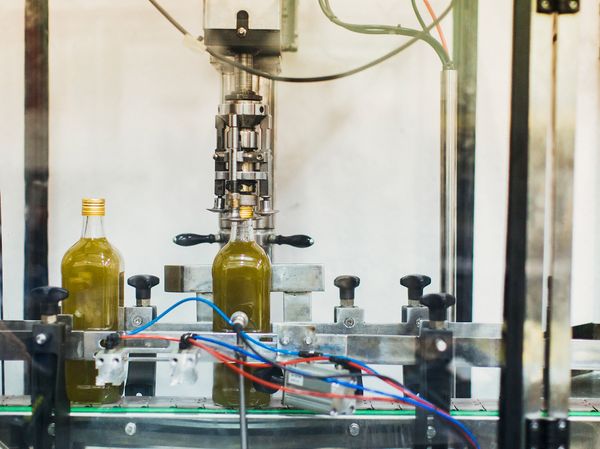
It was a real blow for the family and the business.
He kept his father’s enthusiasm, but has changed many other things. A new mill has been standing beside the older machines for quite some time. It is smaller than the old one and is made of shiny stainless steel. “Tradition is important to us, but the quality of the oil is more important,” he says, shrugging his shoulders. Until the 1990s, the technique used for oil production had remained virtually unchanged.
The old way.
The olives were initially cleaned to remove leaves and dirt before being crushed into a homogenous paste by two revolving millstones. The paste was then spread across several layers of straw mats and these were pressed together by a huge machine. The oil ran down the sides of the mat towers and was collected. Many producers fought against new methods for a long time. After all, it had been done this way for as long as anyone could remember. They viewed the way they made olive oil as more of a cultural experience rather than simply a production process. And they wanted to keep it that way.
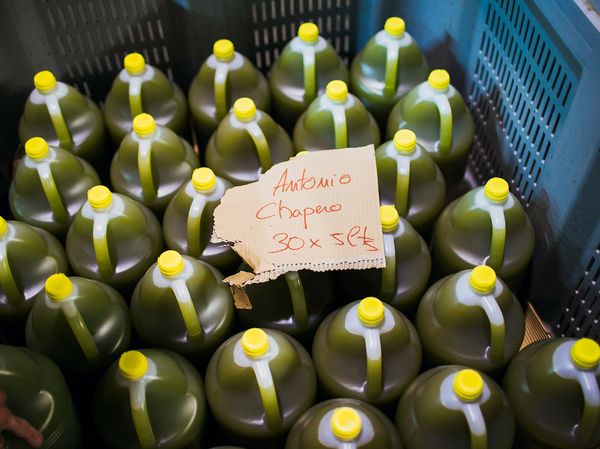
Josep-Maria had his own ideas.
Or simply a little more courage. He was the first oil producer in Spain to make flavoured oils, an affront to the local olive traditionalists. Even his mother was sceptical at first. He integrated herbs and spices into the pressing process, something that had never been done before. Successfully. Today he sells his flavoured oils worldwide.
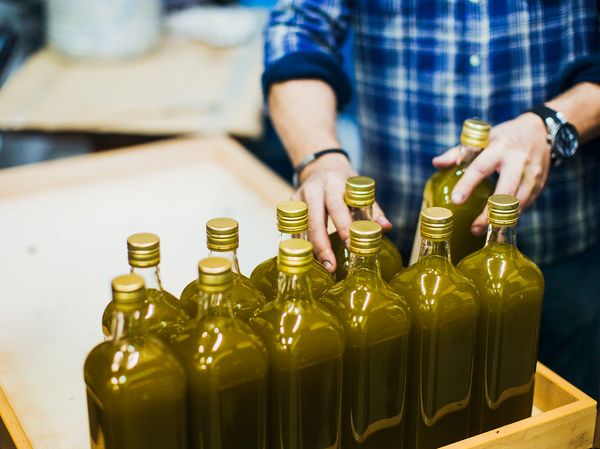
The bridge to the past
He has long since regained the trust of critics due in part to the fact that he has successfully built a bridge connecting tradition to the future of olive oil. He makes use of the latest scientific findings and works on methods to further improve the quality of the oil. Thanks to the new mill, farmers can once again produce their own single-sort olive oil – just like in the old days – except that the quality is much better. It’s a nice reinterpretation of an old tradition. Overall he promotes a new way to view olive oil.
"You absolutely have to treat it like wine.
The taste of wine differs according to harvest period, grape variety, location, and terroir. It is no different with olive oil. Every oil has its own characteristics. We need to learn how to appreciate them.” At the bottling plant, the first bottles are now filled manually. A thick stream of bright green liquid flows from the steel tank into the labelled bottles. “Now, at the beginning of the harvest, the olives are still very green and taste bitter,” says Josep-Maria. “The oil that we extract from these olives we call ‘primaro.’ In terms of flavour, it is very fruity, grassy, and pungent. It’s like the first wine, the ‘primeur,’ or new wine, the “Federweisser.” Because the oil isn’t centrifuged, it is rich in suspended fruit particles. Just like new wine, it should be enjoyed fresh. Later, once the strong autumn sun has turned the fruit darker and riper, the oil also tastes milder and riper. Just one sip and you can quickly taste the difference. It has very little in common with the oil that you know from the supermarket: It tastes more like fruit juice than oil. Delicious.
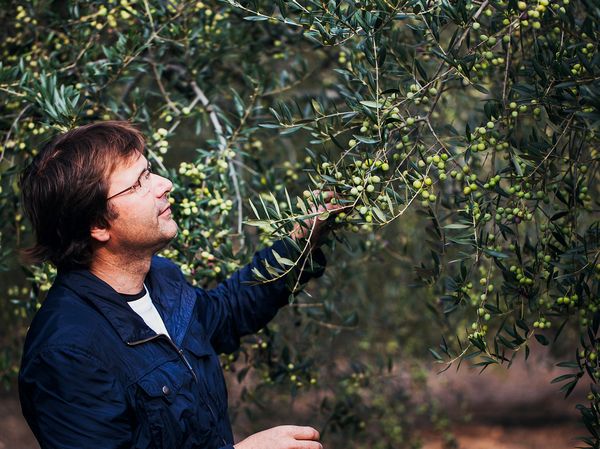
Josep-Maria smiles.
“Many people forget that the olive is a fruit, just like an apple. Freshly squeezed juice from one kind of fruit tastes better than the sweetened juices produced on an industrial scale. Unfortunately, most people are simply accustomed to a relatively poor quality of oil. In some restaurants, oil has sometimes been standing around a bit too long on the table,” he says with a grin. “It’s no surprise that it becomes rancid. How would you expect it to taste?”
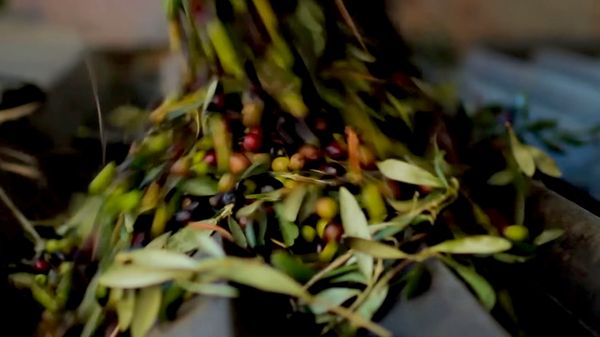
The captain and his trees
Josep Maria Mir-Folch is truly passionate about two things; the sea and home-grown olive oil. During his decades as a captain he set sail many times, always to return to his Massia, the country estate his family has occupied for centuries. Over time, the estate has witnessed shifts and changes, but it has always been Josep Maria Mir-Folch's home. This is where he cultivates his passion for olives.
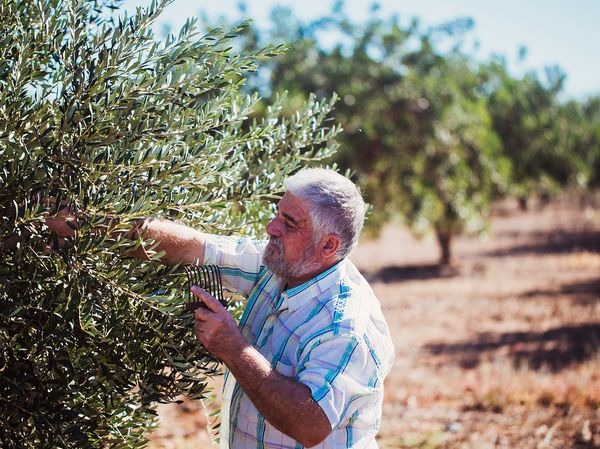
Most of the trees are older than he is
and some of these Methuselahs have been sending their roots down into the groves of the Massia for well over a century. They still bear plenty of fruit and, like any other olive tree, some years are better and some are worse. Josep Maria Mir-Folch still does most of the harvesting himself - by hand, of course, of which he is proud. Finally the olives are made into oil, a task he entrusts only to Josep-Maria Mallafré.
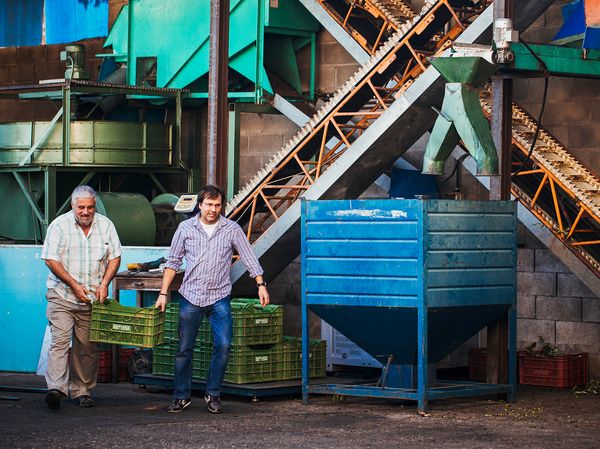
Whereas many other mills combine the harvests of many different farmers when they press oil, Mallafré produces single-sort, personalised oil from individual harvests. Josep Maria Mir-Folch is generous with his own oil and gives it away freely to his friends. He also serves it to guests who are taking a brief holiday in one the tower rooms he has recently renovated.
